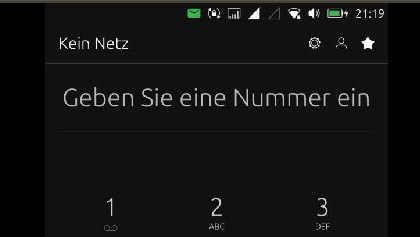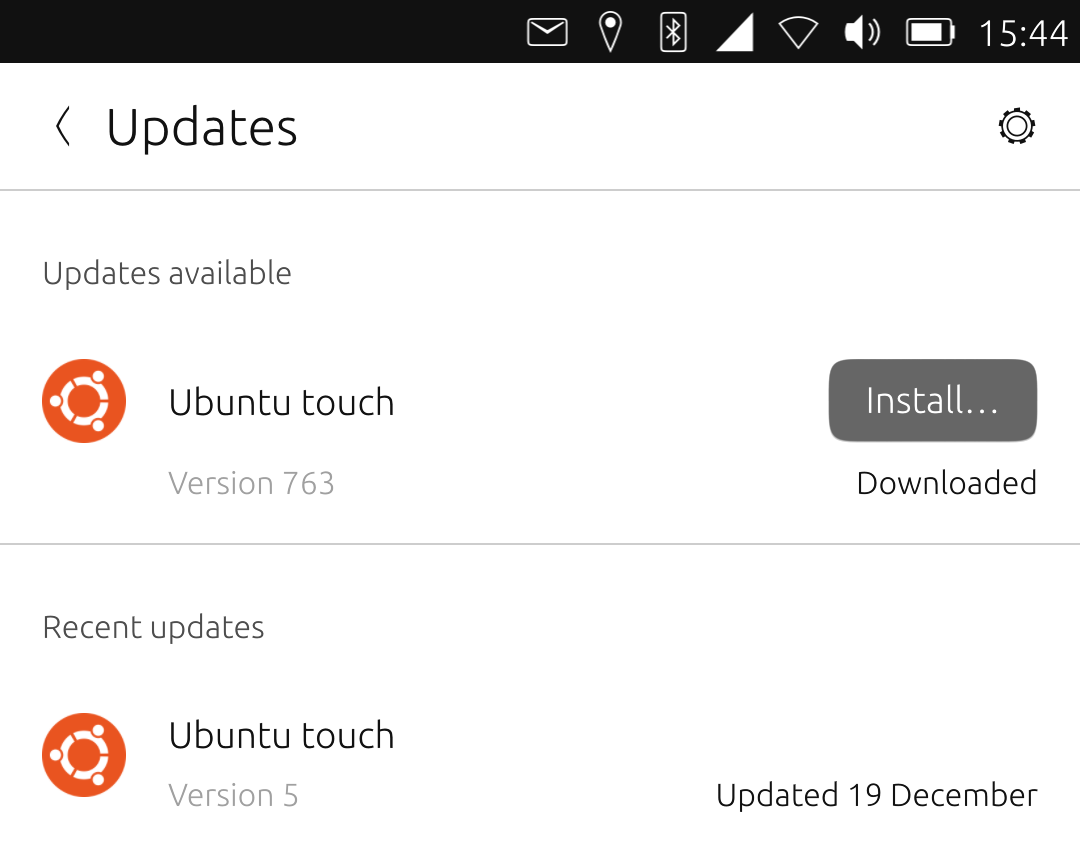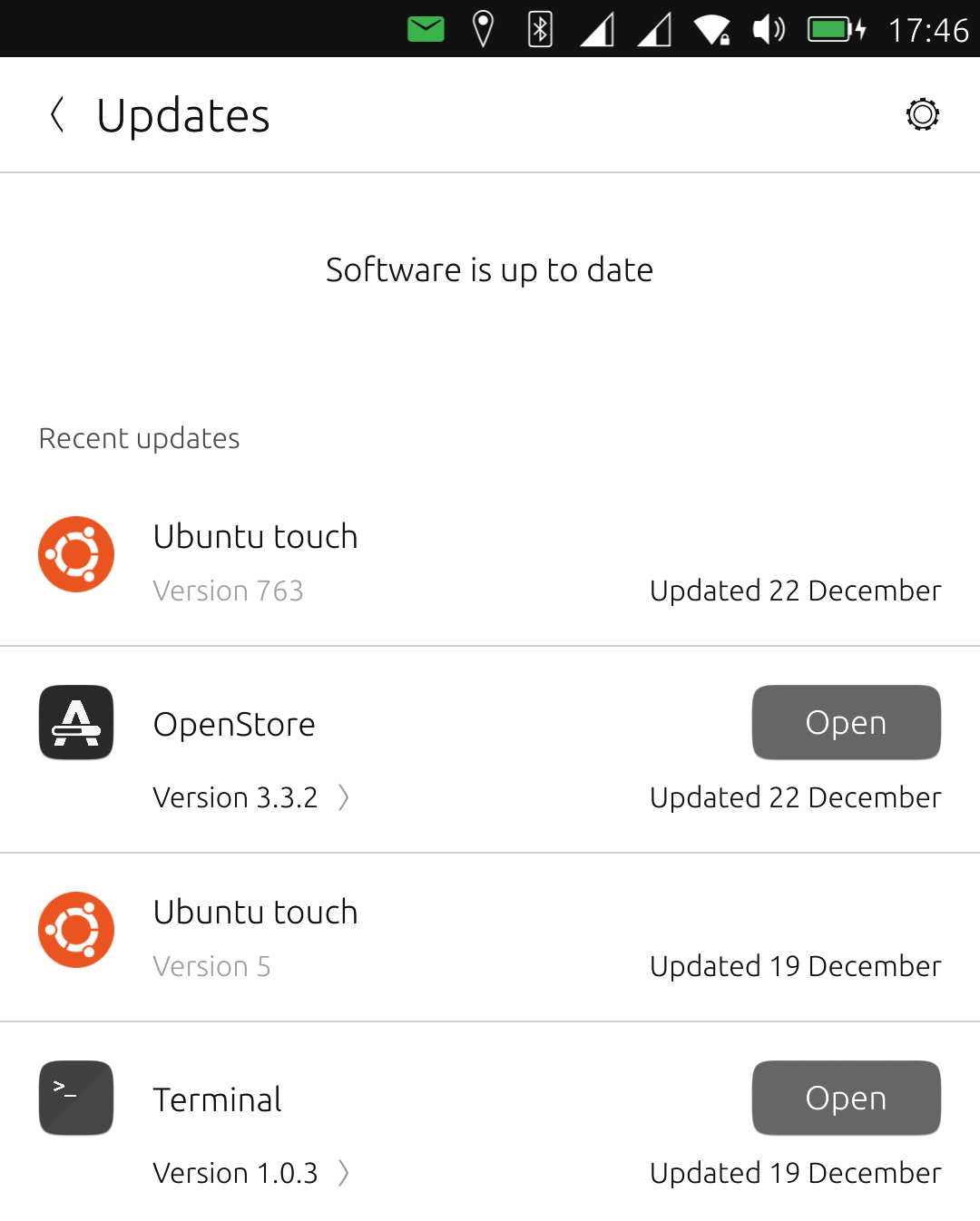Dual-SIM + OTA-20 on Mi A2
-
Hello,
In a recent post dated Nov. 20, @magnargj mentioned that applying OTA-20 on his Mi A2 caused a problem with the 1st SIM slot, which he resolved by moving the card to the 2nd slot.
I'm currently using both slots (private + professional SIMs), which works fine on OTA-19, and I would like to know what to expect before deciding to apply OTA-20.
- Can anyone confirm or deny the issue with dual-SIM support on the Mi A2 under OTA-20?
- If confirmed, is there a workaround (that preserves dual-SIM functionalities)?
- If confirmed, is this issue tracked somewhere?
TIA
-
@phandersson can't confirm. Running two SIMs from different careers without problems.
-
I also have OTA-20 with 2 SIM slots to run on Merlin. I have had another problem with calling for two or three days. There is a network but there is no network in the call part. I'll reset the entire system, it works best.

-
@phandersson hi, I moved it back to check, but it still doesn't work in slot nr. 1...
-
I cleaned my sim cards today with a cotton swab and alcohol. So far everything is working but I deleted everything. What else you can do is rename the sim slots to both sim 1. Or do you also have a defect in the other slot? Sometimes the fault is somewhere else. But if you can use at least 1 slot it's ok.
-
P PhAndersson marked this topic as a question on
-
Many thanks to all those who commented.
I'll apply OTA-20 in the coming days and report back.
-
Just upgraded to OTA-20: the upgrade process itself went flawlessly, but the SIM card in slot #1 is no longer detected!
- during startup, I'm prompted for only one PIN code (the prompt no longer identifies the SIM, but the code only matches SIM #2)
- in "settings | mobile", only one SIM and matching operator is listed (the one for SIM #2)
- same thing in the top-of-screen quick access bar
- "setting | about" reports OTA-20
Is there any information I could collect on the phone to help troubleshoot this?
-
@phandersson https://devices.ubuntu-touch.io/device/jasmine-sprout/
Which Android did you install back then? It says something about Android 9 in the device link. I don't know for sure as I have Xiaomi Redmi Note 9. But even here I had to downgrade to Android 10, because I also had problems with the SIM card at the beginning. I would have tried to reset the system to factory settings after the update. If that doesn't help, test the available channels for the software. Sometimes it also helps to gently clean the SIM card with alcohol. Or simply switch flight mode on and off or reboot several times. Otherwise, wait and see what others say.
-
@phandersson I have MiA2 with OTA 20 with 2 SIMS and it works for me. Available for more questions.
-
@rosenfeldpj It's nice if your device works now. Good luck for the future.
-
@dpitti The device initially came with Android 8.1, but I flashed it with v9 as recommended before proceeding with the UT installation.
-
@rosenfeldpj Many thanks for your offer. It's already a relief to know that a solution most likely exists.
I found out 2 ways to start investigating this issue.
1./ firmware versions
In a recent post (https://forums.ubports.com/topic/6813/unable-to-turn-on-bluetooth-on-mi-a2/29), @nauvpp mentioned upgrading the bluetooth firmware on his device from an archive bundle calledfirmware_jasmine_sprout_V11.0.28.0.zip. I've downloaded that ZIP and looked at its contents, but how can I check whether any of the.imgfiles contained within are more recent than the ones already on the phone?2./ 'dmesg' output
I collected thedmesgoutput after the upgrade (unfortunately, I don't have any example dating back before the upgrade, so I can't compare).In there, searching for the "radio" keyword, I see the following messages:
[ 5.226487] init: Received control message 'interface_start' for 'android.hardware.radio@1.0::IRadio/slot2' from pid: 28 (/system/bin/hwservicemanager) [ 5.226518] init: Could not find service hosting interface android.hardware.radio@1.0::IRadio/slot2 [ 5.226602] init: Command 'exec_start update_verifier_nonencrypted' action=late-fs (/init.rc:390) took 0ms and failed: Service not found [ 5.226747] init: Received control message 'interface_start' for 'android.hardware.radio@1.1::IRadio/slot2' from pid: 28 (/system/bin/hwservicemanager) [ 5.226763] init: Could not find service hosting interface android.hardware.radio@1.1::IRadio/slot2 [ 5.226861] init: processing action (post-fs-data) from (/init.rc:392) [ 5.227228] init: Received control message 'interface_start' for 'android.hardware.radio@1.2::IRadio/slot2' from pid: 28 (/system/bin/hwservicemanager) [ 5.227257] init: Could not find service hosting interface android.hardware.radio@1.2::IRadio/slot2 [ 13.012729] init: Received control message 'interface_start' for 'android.hardware.radio.deprecated@1.0::IOemHook/slot2' from pid: 28 (/system/bin/hwservicemanager) [ 13.012794] init: Could not find service hosting interface android.hardware.radio.deprecated@1.0::IOemHook/slot2The first message block repeats 3 times. The second block occurs only that one time. But is this relevant?
Coming back to my "firmware" line of thought, I see a lot of firmware modules being loaded (often with some hint about their version), but do you have any idea which one I should be looking for?
-
Further debugging info. Here is a list of all the firmware modules and associated devices being loaded (or whose load is attempted) by the kernel:
cc00000.qcom,vidc:firmware_cb dbmd4_va_fw.bin dbmd4_va_preboot_fw.bin adsp.mdt (/devices/soc/15700000.qcom,lpass/firmware/adsp.mdt) adsp.b02 -> adsp.b23 (/devices/soc/15700000.qcom,lpass/firmware/adsp.b02 -> ...) a530_pm4.fw (/devices/soc/5000000.qcom,kgsl-3d0/kgsl/kgsl-3d0/a530_pm4.fw) a530_pfp.fw (/devices/soc/5000000.qcom,kgsl-3d0/kgsl/kgsl-3d0/a530_pfp.fw) a512_zap.mdt (/devices/soc/soc:qcom,kgsl-hyp/firmware/a512_zap.mdt) a512_zap.b02 (/devices/soc/soc:qcom,kgsl-hyp/firmware/a512_zap.b02) cdsp.mdt (/devices/soc/1a300000.qcom,turing/firmware/cdsp.mdt) cdsp.b02 -> cdsp.b07 (/devices/soc/1a300000.qcom,turing/firmware/cdsp.b02 -> ...) cmnlib64.mdt (/devices/virtual/qseecom/qseecom/cmnlib64.mdt) modem.mdt (/devices/soc/4080000.qcom,mss/firmware/modem.mdt) cmnlib64.b00 -> cmnlib64.b06 (/devices/virtual/qseecom/qseecom/cmnlib64.b00 -> ...) mba.mbn (/devices/soc/4080000.qcom,mss/firmware/mba.mbn) msadp (/devices/soc/4080000.qcom,mss/firmware/msadp) modem.b02 -> modem.b28 (/devices/soc/4080000.qcom,mss/firmware/modem.b02 -> ...) tas2557_uCDSP.bin (/devices/soc/c1b6000.i2c/i2c-6/6-004c/firmware/tas2557_uCDSP.bin) wlan/qca_cld/WCNSS_qcom_cfg.ini (/devices/soc/18800000.qcom,icnss/firmware/wlan!qca_cld!WCNSS_qcom_cfg.ini) wlan/qca_cld/wlan_mac.bin (/devices/soc/18800000.qcom,icnss/firmware/wlan!qca_cld!wlan_mac.bin) cpp_firmware_v1_12_0.fw (/devices/soc/ca04000.qcom,cpp/firmware/cpp_firmware_v1_12_0.fw) venus.mdt (/devices/soc/cce0000.qcom,venus/firmware/venus.mdt) venus.b02 -> venus.b04 (/devices/soc/cce0000.qcom,venus/firmware/venus.b02 -> ...) -
@phandersson said in Dual-SIM + OTA-20 on Mi A2:
Just upgraded to OTA-20: the upgrade process itself went flawlessly, but the SIM card in slot #1 is no longer detected!
Hi, I faced the same problem. I remember it was upgraded via delta, not full image. After full image "re-upgrade" two sims appeared in my case.
You can try this: Through the settings change channel to devel, close settings, start settings again, there should be devel upgrade available, don't upgrade and change channel back to stable and close settings again, now when you start settings there should be stable upgrade available - full image (cca 500 MB). Do the upgrade and you will see.
-
@c4pp4 I tried to follow the procedure you suggested, but without success so far.
Right after switching to the "dev" channel, the phone downloaded a 500MB installation image (which I didn't actually install, obviously), but once I returned to the stable channel, nothing more happened. It still shows the dev image ready for install, but nothing new for the already installed system (see attached screenshot).

Likewise in "About | Check for updates" -- it checks, then shows the exact same thing.
-
@phandersson If you are on OTA20 yoh will not get a new stable version until the next OTA is ready. You could try installing the dev download, see if two sims show then change straight back to the stable channel and see if they remain.
-
@lakotaubp said in Dual-SIM + OTA-20 on Mi A2:
If you are on OTA20 yoh will not get a new stable version until the next OTA is ready.
I disagree, the procedure I described works in my case - Xperia X and Mi A2.
@PhAndersson
If you are unlucky with it, do what @Lakotaubp said. -
@lakotaubp Following your suggestion, I just switched to "dev" channel and installed the image (ver. 763).
I'm happy to report that this restored access to both SIM slots -- see screenshot below:

I'll now switch back to the stable channel and report again.
-
Well, I can select the stable channel again, but nothing happens: the updater doesn't detect anything to download (even after closing and restarting the "Settings" app).
-
@phandersson Try a complete shutdown and reboot of the phone sometimes this does play up.
Hello! It looks like you're interested in this conversation, but you don't have an account yet.
Getting fed up of having to scroll through the same posts each visit? When you register for an account, you'll always come back to exactly where you were before, and choose to be notified of new replies (either via email, or push notification). You'll also be able to save bookmarks and upvote posts to show your appreciation to other community members.
With your input, this post could be even better 💗
Register Login